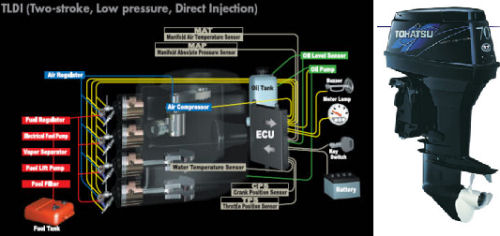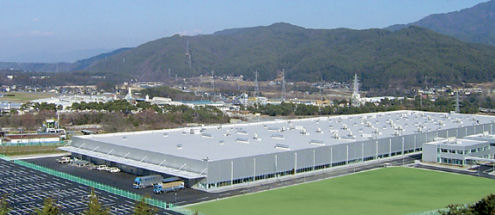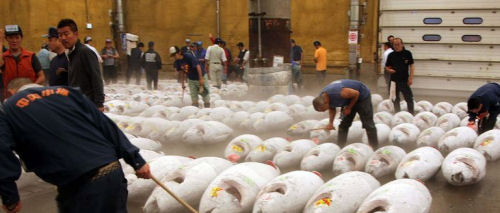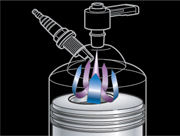Brief Summary
Tohatsu specializes in after market and re-power engines and they tell us the 70 hp was designed to provide incredible oil and fuel savings (anywhere from 12% to 71% depending on RPM) by utilizing an air-assisted direct fuel injection system to precisely mix air and fuel. They also tell us the TLDI outboard provides an almost complete burn to reduce emissions while keeping the quality and durability that has become associated with the Tohatsu brand.
Key Features
The TLDI outboard motors are designed to be simple and have fewer components that need maintenance or service.
The 32 bit engine control unit controls the fuel injection and ignition timing for TLDI outboards.
One of TLDI's essential engine components that is the driving force in achieving stabilized fuel injection.
Specifications
| Type of Engine | 4-Stroke |
|---|---|
| Number of Cylinders | 3 |
| Horse Power | 70 |
| Configuration | In-line |
| Weight | 315.00lbs |
| Fuel Type | Gasoline |
| Fuel Delivery | |
| Shaft Length Options | 20 in |
| Shift Throttle Control | |
| Displacement | 77.30cu in |
| Steering Control | Power Assist |
| Recommended Fuel | |
| Alternator Output | |
| CARB Rating | 2-Star |
| Engine Monitoring System | Standard |
Captain's Report
 Tohatsu’s TLDI system is SOTA and is as good or better than anything else on the market in 2-stroke outboards. Its 70-hp engine has lots of useful applications.
Tohatsu’s TLDI system is SOTA and is as good or better than anything else on the market in 2-stroke outboards. Its 70-hp engine has lots of useful applications.If you are like most people around our marina then you probably never gave much thought to Tohatsu outboard engines. Occasionally you’d see the brand in the small booth at the boat show, and you’d rarely see an ad for them. We always considered it an “off brand,” one not ready for prime time, particularly against the big boys like Yamaha, Mercury and the rest. Then we discovered that all of the Mercury engines from 2-hp to 30-hp are actually re-labeled Tohatsu engines. Well, if Tohatsu engineering and manufacturing are good enough for the mavens in Fond du Lac, how bad could they be? And maybe it’s a good thing that Tohatsu doesn’t spend millions of dollars at boat shows and promoting bass tournaments, after all who ends up paying for that in the end?
In 1956, Tohatsu produced the first outboard motor in Japan, the "OB-2", an air-cooled 1.5 horsepower engine. Since then, Tohatsu has steadily developed original marine products such as two-stroke, four-stroke, and TLDI® outboard motors. Along the way Tohatsu and Nissan Marine (a division of Nissan Motors) entered into a joint venture and now engines are marketed under both the Tohatsu and Nissan brand names, much as Evinrude and Johnson did in the mid 20th century in the U.S.
 The Tohatsu plant in Japan that has a 200,000 unit annual capacity and 450 employees.
The Tohatsu plant in Japan that has a 200,000 unit annual capacity and 450 employees.In January 2005, Tohatsu opened a new state-of-the-art manufacturing plant in the mountainous area of central Japan that has over 34,000m2 of space and has a production capacity of over 200,000 units per year. Tohatsu's new plant uses technologically advanced machinery that is fully automated to produce reliable outboards at cost-efficient production levels not possible in old factories.
 Fishing is a way of life in Japan. Here tuna (and hundreds of other species of sea food) are auctioned at 5 am six mornings a week at Tokyo’s Tsukiji market, the largest in the world.
Fishing is a way of life in Japan. Here tuna (and hundreds of other species of sea food) are auctioned at 5 am six mornings a week at Tokyo’s Tsukiji market, the largest in the world.Commercial Fishermen are Tohatsu’s Prime Customers
 The finely atomized fuel mist created by the fuel injector is injected near the spark plug to achieve ideal combustion.
The finely atomized fuel mist created by the fuel injector is injected near the spark plug to achieve ideal combustion.
Since Tohatsu’s primary customers over the years have been Japanese fishermen who make their living in the frigid waters around Japan, reliability is serious business. We once met some Japanese fishermen at 5 am in the Tokyo fish market and we got the distinct impression that they would not put up with any nonsense. The folks at Tohatsu tell us that is why they have worked hard to keep their engines simple. By keeping the engines as basic as possible it not only makes them less expensive to build, it also makes t